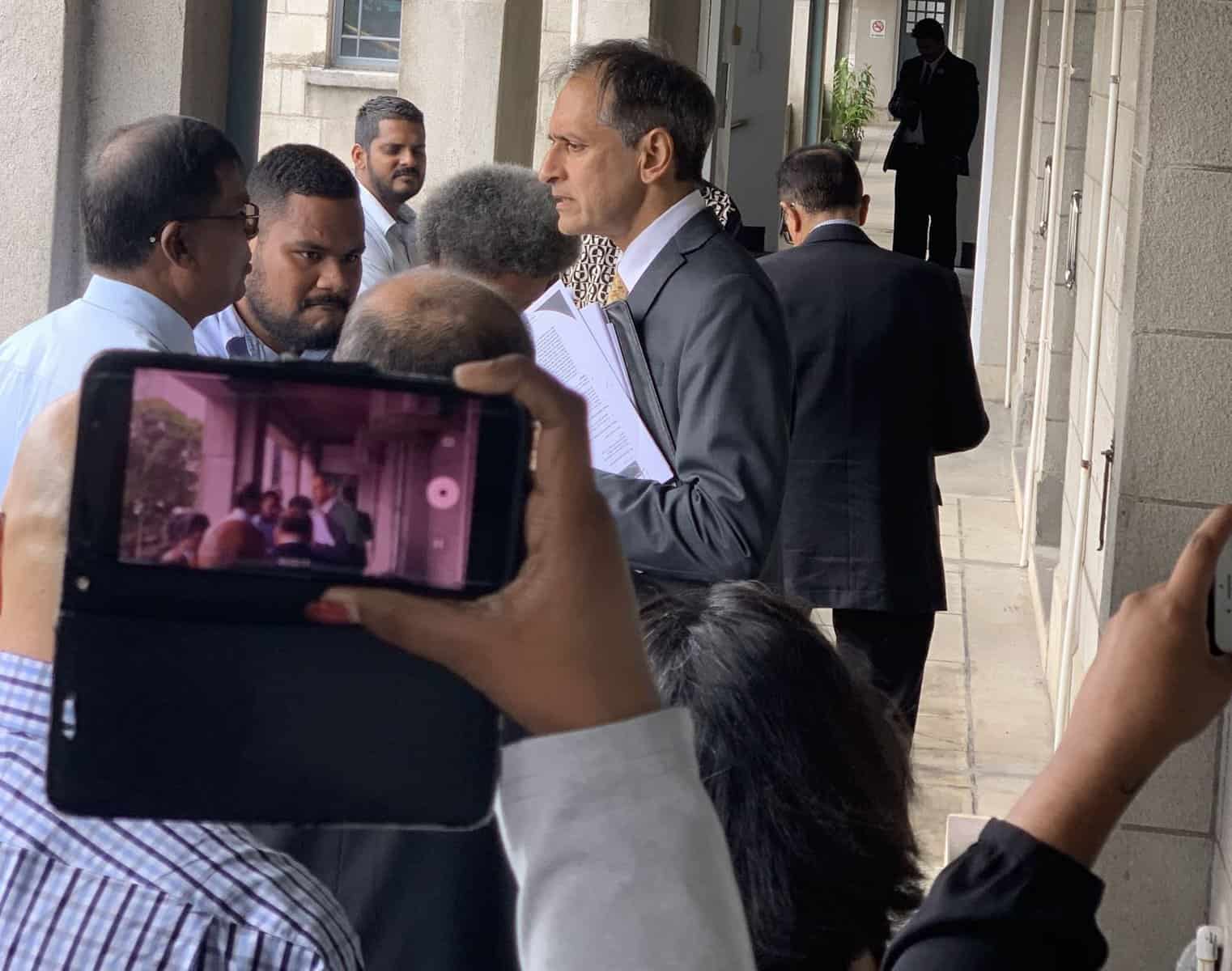International legal bodies are “deeply concerned” over the Attorney-General of Fiji’s legal pursuit against Fijian lawyer Richard K. Naidu, calling for the judiciary to uphold the Rule of Law and set aside the conviction.
Naidu on Tuesday was found guilty of contempt and scandalising the court by the country’s High Court over a post on his Facebook page pointing out a mistake in the spelling of a judgement. He now faces a fine or jail time when mitigation and sentencing takes place on January 5, 2023.
The Law Council of Australia, which arranged for Nicholas Cowdery AO KC to observe the hearing, held in Suva on 10 November, says it notes Naidu’s conviction with grave concern.
It states that while Cowdery reportered there was “formal procedural regularity”, it is his view that Naidu was denied procedural fairness and was not afforded a fair trial on the following grounds:
• concerns about the bona fides of the proceedings;
• the attempted reversal of the onus of proof;
• Mr Naidu’s inability to test the evidence against him, having been prevented from cross-examining the sole witness, the Attorney-General; and
• Mr Naidu’s inability to know in advance of the hearing the case against him for trial, with the Judge refusing to rule on Mr Naidu’s challenges to the admissibility of evidence before proceeding with the hearing.
The Law Council further says Naidu’s inability to test the evidence against him appears to be in breach of both the UN International Covenant on Civil and Political Rights (ICCPR) and Fiji’s own Constitution.
Meanwhile the Law Association for Asia and the Pacific (LAWASIA) says the charge is “unduly harsh”, “disproportionate”, and “critical” to the unfair treatment of individuals by the military and governing authorities in Fiji.
It cited the United Nations Basic Principles on the Role of Lawyers that require States to ensure that lawyers are not subject to intimidation, harassment or interference, and are not threatened with prosecution, in the performance of professional duties, standards and ethics.
“This category of contempt of court has either been abolished or is generally only resorted to in exceptional cases where there is bad faith on the part of the alleged contemnor that has caused a real risk of undermining public confidence in the judiciary.
“It does not appear that the burden of proof of the contempt has been satisfactorily met by the prosecution in Mr. Naidu’s case,” a statement released this week said.
The Bar Association of India reiterated Thursday that the Fijian judiciary is “not lowered” in any way by mere statements or humorous remarks. However, it is concerned that this judgment may not align with the “high standard” set by the Fijian judiciary, which ought to allow the use of humour and satire.
“It is common across the world, particularly in jurisdictions which uphold the Rule of Law, for members of the Bar to engage in comment on the Court which extends to humour,” it emphasised.
“The common law offence of contempt due to ‘scandalising the court’ is a power that must be used sparingly and with scrupulous care.
It confirmed the common law offence has been abolished in the United Kingdom, and Law Commissions in both Australia and New Zealand have recommended that the offence be abolished.
“The exercise of contempt powers is at the centre of a delicate balance between upholding freedom of speech and upholding public confidence in the administration of justice.
“In exercise of their professional roles and obligations, lawyers are equally entitled to freedom of speech and expression, and reasoned and legitimate criticism of judges or courts is permitted and encouraged in all democracies.
“We call on the Fijian judiciary to play its role to protect the rights of lawyers. We call on the respected Attorney-General of Fiji, who initiated the contempt proceedings against Mr. Naidu, to forthwith bring the proceedings to a satisfactory closure by causing the conviction to be annulled,” the Bar stated.
